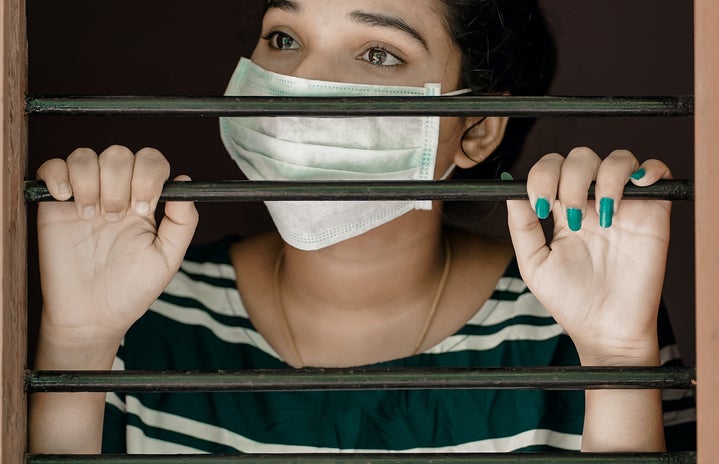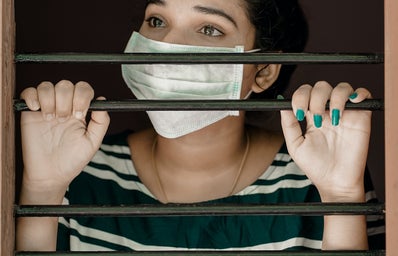There is no doubt concerning the fact that the COVID -19 outbreak has been a difficult time associated with ambiguity and paranoia for everybody. It is as certain as it gets that the realms of structural genderism have taken quite astonishing turns during the pandemic. Surrounded by the dilemma, I’m still trying to figure out if that’s good or bad.
Considering that the lockdown has been physically, emotionally, and financially draining, thousands have lost their jobs directly or indirectly. Keeping in mind the stringent cultural aspects, this has influenced how gender roles are portrayed. In a household, if the working condition of the husband has been reduced to unemployment, and the wife is working for the livelihood of the family, then it’s perfectly fine and even appreciative if the husband takes up the responsibility of handling the household chores and childcare. If a womxn is emotionally or mentally exhausted from the workload, it is okay if the husband takes up the responsibility of contributing to half the work.
The pandemic, in some ways, has proven that if one parent has to take care of the household and the children, it doesn’t necessarily have to be the wife.
It’s quite absurd how this isn’t as normalized in our society as it should be. The breadwinning role associated with working womxn is nothing to feel complexed or ashamed about. Instead, it should be embraced. Men have been conditioned to believe that the power of manhood depends on how much they earn and their capability as a man is defined by their superiority over womxn in all spheres, especially monetary earnings. They have been conditioned by patriarchy to be threatened by their wives’ capability to earn more than them.
If a man decides to stay home and take care of the household to ease the mental load of his working wife, it won’t be surprising if he is ridiculed by society. The sole reason for this is that the misogynistic spheres of society have engulfed men in toxic masculinity.
When we study about the changes in the social-economic-cultural model during the pandemic, it is essential to address that the modification of gender roles during these hard times has either been overlooked or invalidated in the sense that it largely renders discriminatory treatment towards womxn. Whether it is about the sudden rise in cases of unemployment, or discriminatorily, inadequate distribution of salaries/wages across genders, womxn, especially those who belong to the category of minorities and migrant workers, have suffered to a great extent.
The struggles of these womxn, especially migrant laborers have been neglected. Paying attention to the facts, figures, and statistics for public transcendence is not considered to be substantial.
Let’s not forget how domestic violence across the world has seen an exorbitant increase underlying the fact that womxn are objectified as mere submissive beings, viewed as instrumental tools for toxic masculine entities to take their animalistic rage and cowardice out on. Now, due to the national and international lockdown, these survivors were unable to even seek external help due to a paucity of resources. They silently endured the trauma of having to live with their assaulter every day, under the same roof, and of being abused emotionally, mentally, and physically.
The saddest and the most enraging part is that international health organizations and the central government scantily take into account the gendered impact of this pandemic in societal realms. Gender sensitive outbreak planning is something that should have been a significant facet in determining the action force during the lockdown.
We are so embedded in the traditional ways that we often fail to question the structural patriarchy and internalized misogyny that resides within our beliefs, prejudices, and cultural norms. The urgency to normalize the changing gender roles not only during this pandemic but also long after things go back to normal is the need of the hour.
If you are someone who has gone through, or witnessed abuse/assault, here are some helplines that you can reach out to seek help:
- Shakti Shalini- (011)24373737, 10920
- All India Womxn’s Conference- 10921, (011)23389680
- Sakshi- Violence Intervention Centre- (0124)2562336, 5018873
Delhi Commission For Womxn- (011)23379181


